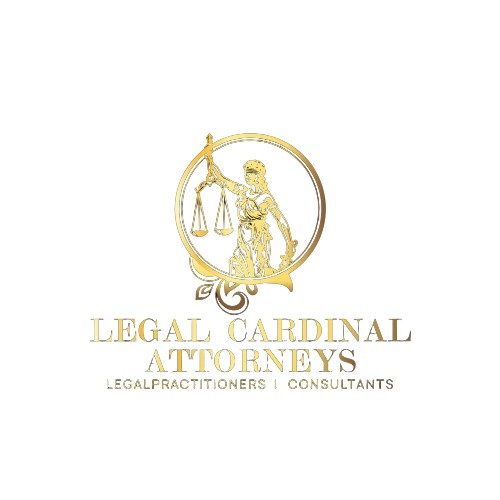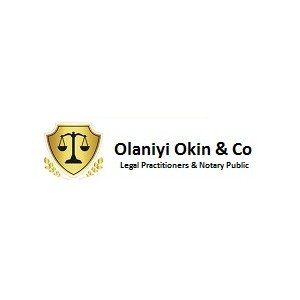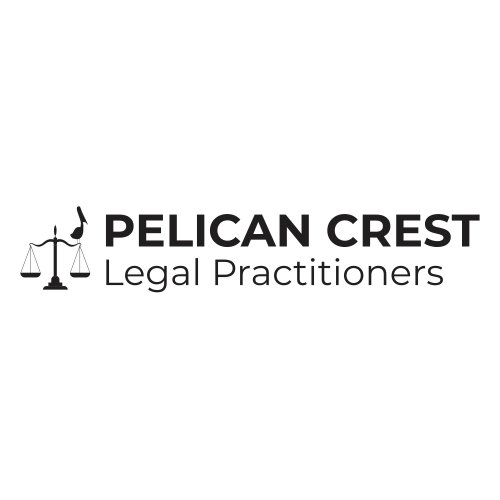Best Funds & Asset Management Lawyers in Ibadan
Share your needs with us, get contacted by law firms.
Free. Takes 2 min.
List of the best lawyers in Ibadan, Nigeria
About Funds & Asset Management Law in Ibadan, Nigeria
Funds and asset management involves the professional administration of various investment funds, portfolios, and client assets for the purpose of growing wealth and managing financial risks. In Ibadan, Nigeria, this industry is expanding as more individuals and businesses seek better ways to manage their investments, retirement savings, real estate, and other financial assets. Practitioners in this sector must operate under regulatory oversight to ensure fairness, transparency, and the protection of client interests.
Why You May Need a Lawyer
Legal assistance is essential at various stages of funds and asset management. Common situations where you may need a lawyer include:
- Drafting or reviewing investment agreements and asset management contracts
- Navigating regulatory compliance with national and state authorities
- Resolving disputes between fund managers, investors, or stakeholders
- Handling matters related to breach of fiduciary duty or professional misconduct
- Assisting with mergers, acquisitions, or restructuring of funds and investment entities
- Guiding the establishment of mutual funds, hedge funds, and investment clubs compliant with Nigerian laws
- Protecting your interests in cases of fraud or asset mismanagement
- Advice regarding cross-border investments and foreign exchange regulations
- Guidance on estate planning and management of inherited assets
- Advising on taxation matters related to funds and assets
Local Laws Overview
Funds and asset management activities in Ibadan are governed by both federal and state laws. The principal legislation regulating securities, funds, and asset management in Nigeria is the Investments and Securities Act (ISA) administered by the Securities and Exchange Commission (SEC). Local asset managers must also adhere to rules set by the Central Bank of Nigeria (CBN) and comply with anti-money laundering and counter-terrorism financing guidelines. Additionally, practitioners must pay attention to the Companies and Allied Matters Act (CAMA), relevant state laws, tax codes, and local business licensing requirements. Proper registration, disclosure, and reporting processes are mandated for all fund managers and investment advisers.
Frequently Asked Questions
What is the difference between a fund manager and an asset manager?
A fund manager oversees and makes investment decisions for pooled funds, such as mutual funds or pension funds. An asset manager provides investment management services to individual or institutional clients and may handle a wider range of asset types, including real estate and private equity.
Is it mandatory to register as a fund manager or asset manager in Ibadan?
Yes, anyone offering fund or asset management services in Ibadan must be registered with the Securities and Exchange Commission (SEC) and may need additional registrations at the local or state level.
Can foreign investors participate in asset management activities in Ibadan?
Foreign investors can participate, but they must comply with Nigerian regulations on foreign investments, including obtaining the necessary approvals and adhering to exchange control rules.
How are disputes between investors and fund managers resolved?
Disputes can be resolved through negotiation, mediation, arbitration, or litigation. It is advisable to include dispute resolution clauses in asset management contracts.
What are the key legal risks in funds and asset management?
Key risks include regulatory non-compliance, breaches of fiduciary duty, fraud, misrepresentation of investment performance, and failure to disclose material information to clients.
What types of assets can an asset manager in Ibadan handle?
Asset managers may handle cash, equities, bonds, mutual funds, real estate, commodities, and alternative investments, depending on their registration and expertise.
What regulatory bodies oversee asset management in Ibadan?
The main regulatory bodies are the Securities and Exchange Commission (SEC), the Central Bank of Nigeria (CBN), and the Nigerian Stock Exchange (NSE). State authorities may also play a role in business registration and taxation.
Are returns on managed funds guaranteed?
No, returns on managed funds are not guaranteed. All investments carry some degree of risk, and past performance is not indicative of future results.
What information should be disclosed to clients?
Fund and asset managers must provide detailed disclosures on investment strategies, risks, fees, performance history, conflicts of interest, and any changes that may affect the client's investments.
How can I verify if an asset manager is duly licensed?
You can verify the registration and licensing status of an asset manager by checking the database or registers maintained by the Securities and Exchange Commission (SEC) or consulting with local legal advisers.
Additional Resources
If you require further information or support, consider the following resources:
- Securities and Exchange Commission (SEC) Nigeria - for registration, compliance guidelines, and updates
- Central Bank of Nigeria (CBN) - for regulations affecting the financial sector
- Nigerian Stock Exchange (NSE) - for listed funds and investment opportunities
- Ibadan Chamber of Commerce and Industry - local business support and networks
- Oyo State Ministry of Commerce, Industry, and Cooperatives - for state-level regulations and business information
- Nigerian Bar Association (Ibadan branch) - can refer you to qualified lawyers with expertise in funds and asset management
Next Steps
If you need legal assistance in funds and asset management in Ibadan, Nigeria, begin by gathering all relevant documents related to your investments, business formation, or assets. Identify your main concerns or questions, then consult with a qualified lawyer who specializes in securities or corporate finance law. Verify their credentials through the Nigerian Bar Association or the Securities and Exchange Commission. During your consultation, discuss your objectives and risk tolerance openly, and request a clear explanation of your rights and obligations. Taking these steps will help you make informed decisions and protect your financial interests.
Lawzana helps you find the best lawyers and law firms in Ibadan through a curated and pre-screened list of qualified legal professionals. Our platform offers rankings and detailed profiles of attorneys and law firms, allowing you to compare based on practice areas, including Funds & Asset Management, experience, and client feedback.
Each profile includes a description of the firm's areas of practice, client reviews, team members and partners, year of establishment, spoken languages, office locations, contact information, social media presence, and any published articles or resources. Most firms on our platform speak English and are experienced in both local and international legal matters.
Get a quote from top-rated law firms in Ibadan, Nigeria — quickly, securely, and without unnecessary hassle.
Disclaimer:
The information provided on this page is for general informational purposes only and does not constitute legal advice. While we strive to ensure the accuracy and relevance of the content, legal information may change over time, and interpretations of the law can vary. You should always consult with a qualified legal professional for advice specific to your situation.
We disclaim all liability for actions taken or not taken based on the content of this page. If you believe any information is incorrect or outdated, please contact us, and we will review and update it where appropriate.

















